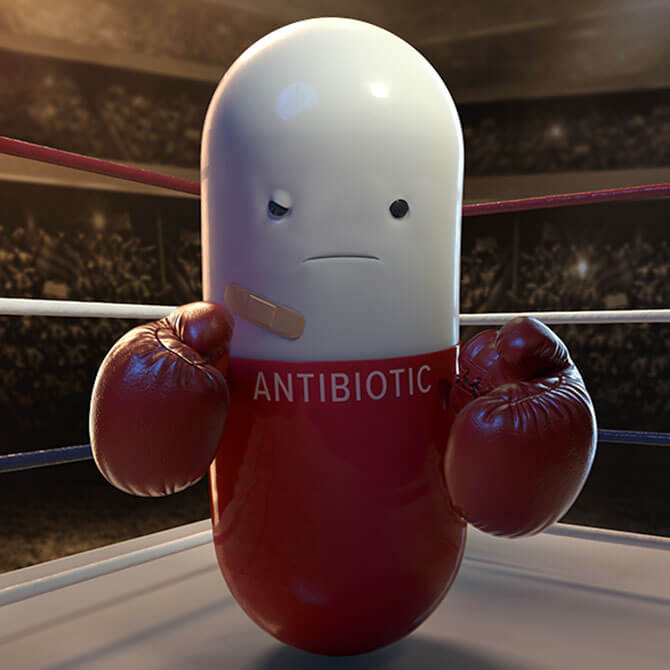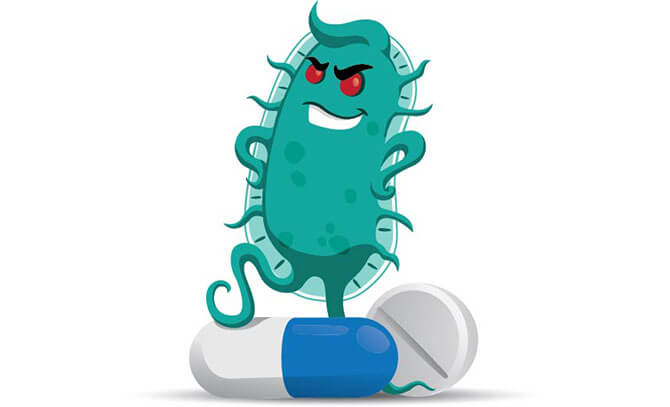
Your little one has had the sniffles for a few days. Now the poor child is coughing badly and a temperature check confirms a high fever!
You rush to the clinic, where the doctor does a check and prescribes common medicine to relieve the symptoms – a cough syrup and something for the nose. He says to return and consult him again if your child still isn’t feeling better in a couple of days.
Sounds familiar?
Don’t you sometimes wish that the doctor would give you antibiotics straightaway? Then maybe, you could save a trip back to the clinic and, most important of all, your child would not have to suffer for so long!
Year-end Holiday Camps: Discover Fun and Exciting Camps for Kids; Book Early
Dec Fun: Get the Best Ideas for the School Holidays
Contrary to popular belief, antibiotics are not a quick fix for every illness. They are only effective against bacterial infections. So when faced with viral infections such as the common cold or flu, they are totally ineffective!
Here are five useful things about antibiotics that you should know before your next doctor visit.
1. Bacteria And Viruses Are Different

As they each have their own way of surviving and replicating, bacteria and viruses give rise to different types of infections.
Bacterial infections are not as common as viral infections. Commonly-known bacterial infections include strep throat, tuberculosis and salmonella infection. On the other hand, examples of viral infections include the common cold, flu, and hand, foot and mouth disease.
Antibiotics only work against bacteria, therefore they are not effective against infections caused by viruses.
| Bacterial Infections | Viral Infections |
| Staph Infection (Staphylococcus) | Flu (Influenza virus) |
| Strep Throat (Streptococcus) | Common Cold (Rhinovirus) |
| Intestinal infection – resulting in diarrhoea and vomiting (E. Coli) | Gastroenteritis – inflammation of the stomach and intestines (Rotavirus) |
2. Colds And Flu Are Usually Caused By Viruses

However, these Upper Respiratory Tract Infections (URTIs) usually resolve within 3 to 10 days.
Colds and flu are typically the result of viral attacks and do not require antibiotics. Doctors generally prescribe medicines such as a cough syrup for symptomatic relief to help make the patient feel better. Besides tender loving care, lots of water and good ol’ rest, there is no quick fix that can quicken the recovery process.
3. Antibiotics Only Work For Bacterial Infections

Bacterial infections such as strep throat and salmonella infection, as opposed to viral infections, need to be treated with antibiotics such as Penicillin, Doxycycline and Amoxicillin.
Antibiotics work by destroying or slowing down the growth of bacteria. They are shown to be effective against bacterial infections, usually improving symptoms dramatically within 24 to 48 hours. However, they have no effect on viruses.
Giving your child antibiotics for a cold, for example, does not relieve symptoms nor speed up recovery. In fact, it exposes the little one to the risk of side effects such as diarrhoea and nausea, potentially adding more discomfort on an already sick child.
4. Misusing Antibiotics Can Lead to Severe Consequences

Antibiotic resistance occurs when bacteria learn to adapt and change in response to antibiotics. With each “learning experience”, the bacteria grows smarter at fighting back. In time to come, antibiotics will not work on these bacteria anymore.
Whenever we use antibiotics wrongly – for a viral infection – we give bacteria a chance to adapt to the antibiotic and evolve into superbugs – bacteria that can resist antibiotics.
If this misuse of antibiotics continues, antibiotics may not work as effectively as needed in the future.
5. Talk to Your Doctor

Learn more about the right use of antibiotics here.
This feature is brought to you by Health Promotion Board.
GIVEAWAY ALERT:
Take Part in the Micro Monster Mayhem Giveaway
to Win Attractive Prizes


















